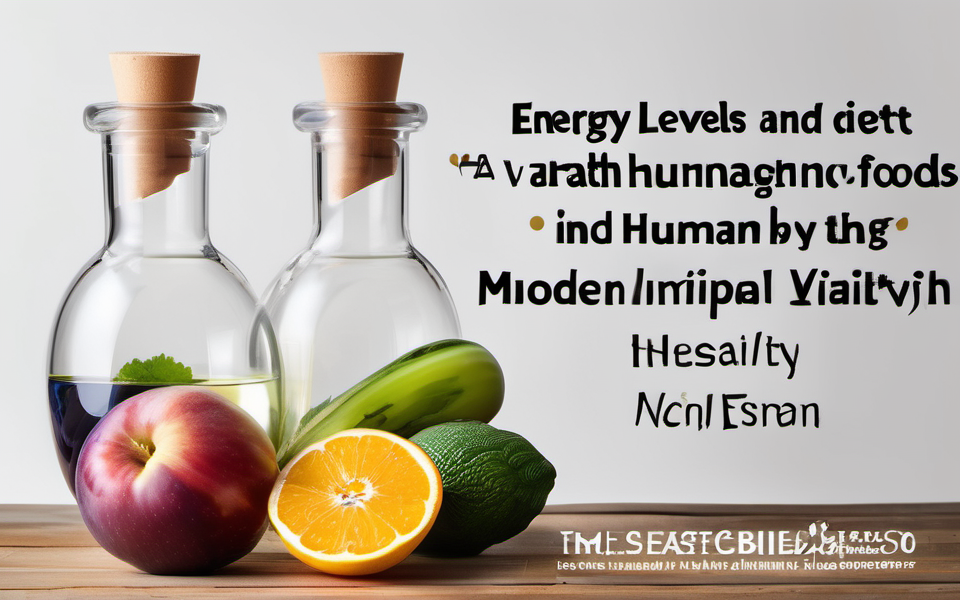Energy Levels and Diet: A Study of Foods That Enhance or Drain Vitality
We all crave that feeling of boundless energy, the kind that lets us power through our day, tackle challenges, and feel alive. But finding sustainable energy often feels like a quest. Turns out, what we put on our plates plays a crucial role in how we feel, from that sluggish afternoon slump to a surge of focus and vitality. Let’s delve into the world of foods that can either enhance or drain our energy levels.
Understanding the Energy Equation:
Think of your energy levels like a bank account. Just as you wouldn’t expect to withdraw money without making deposits, your body needs regular, quality fuel to keep energy levels stable. Here’s what fuels your energy:
- Carbohydrates: Your body’s primary source of energy. Complex carbs like whole grains, fruits, and vegetables release energy gradually, providing sustained power.
- Protein: Essential for building and repairing tissues, but also helps regulate blood sugar and keeps you feeling fuller for longer.
- Healthy Fats: Provide sustained energy, support hormone production, and aid in nutrient absorption.
- Hydration: Crucial for everything from energy production to temperature regulation and cell function.
Energy Boosters: Foods to Power Up Your Day:
These food superstars can help you fuel your day with vibrant energy:
- Whole Grains: Think brown rice, quinoa, oats, whole-wheat bread, and pasta. Complex carbs provide a slow, sustained energy release.
- Fruits: Loaded with natural sugars for quick energy boosts. Opt for low-glycemic fruits like berries, apples, and pears for more sustained energy.
- Lean Protein: Chicken, fish, tofu, beans, and lentils provide lasting energy, keep you feeling full, and stabilize blood sugar.
- Healthy Fats: Avocados, nuts, seeds, olive oil. These help with satiety, support brain function, and provide sustained energy release.
- Iron-Rich Foods: Important for red blood cell production, which carries oxygen to muscles and vital organs. Good sources include red meat, beans, spinach, and lentils.
- Hydration Power: Water is essential for every bodily function, including energy production. Dehydration leads to fatigue.
- Caffeine: While not a magic solution, caffeine in moderation can temporarily boost energy. However, it’s best to avoid too much late in the day.
- B Vitamins: Important for energy production, metabolism, and nerve function. Find them in leafy greens, meat, eggs, and dairy products.
Energy Drainer: Foods That Might Slow You Down
These foods might leave you feeling sluggish and drained:
- Processed Foods: High in sugar, unhealthy fats, and sodium, often lead to spikes and crashes in energy levels.
- Simple Carbohydrates: Sugary foods like white bread, pastries, candy, and sugary drinks can provide quick energy, but it’s quickly followed by a crash.
- Saturated and Trans Fats: Found in red meat, butter, and fried foods. They contribute to inflammation and can hinder energy levels.
- Excessive Caffeine: While a little caffeine can be helpful, too much can cause jitters, anxiety, and ultimately lead to fatigue.
- Alcohol: Can dehydrate you and disrupt sleep, both major energy stealers.
- Low-Sodium Diet (Extreme): Too little sodium can disrupt fluid balance, potentially leading to fatigue.
Beyond Food: Other Energy Boosters:
- Quality Sleep: Prioritize getting 7-9 hours of sleep nightly for optimal energy production and repair.
- Regular Exercise: Moving your body improves blood circulation, releases endorphins, and helps you sleep better.
- Stress Management: Chronic stress drains energy. Engage in activities that promote relaxation, such as yoga, meditation, or spending time in nature.
Creating Sustainable Energy:
The key to consistent energy is creating a balanced lifestyle. Focus on a diet rich in whole foods, prioritize quality sleep, move your body regularly, and manage stress effectively. Remember, your energy is precious – nourish it wisely!









